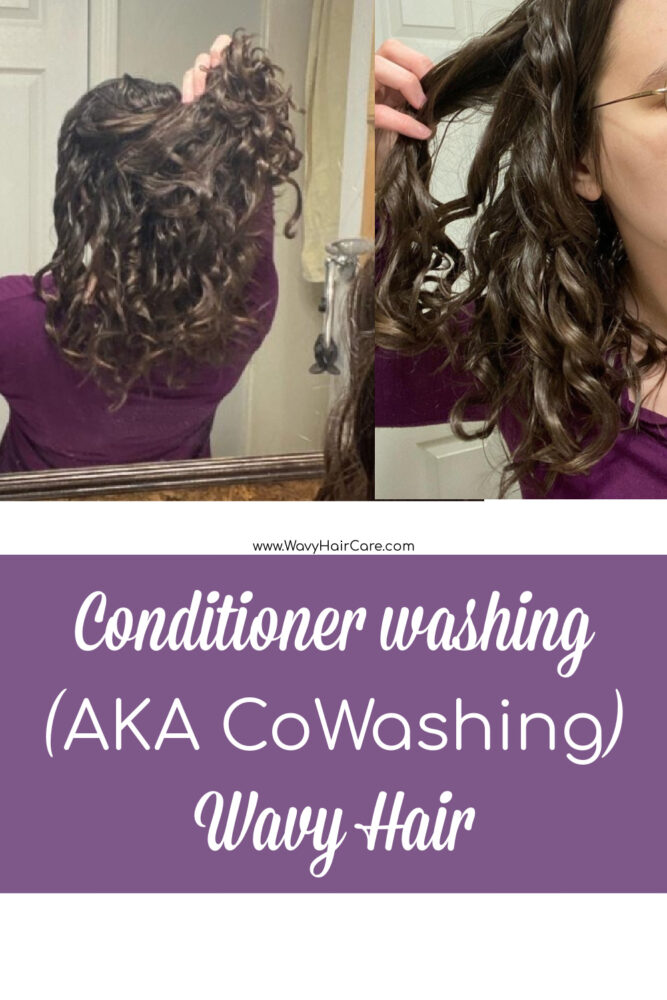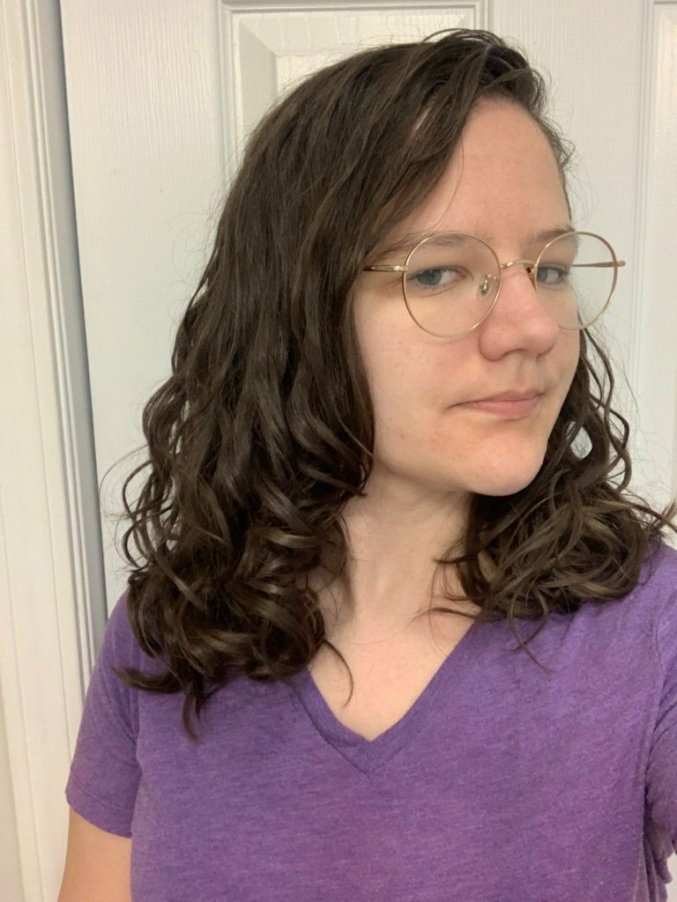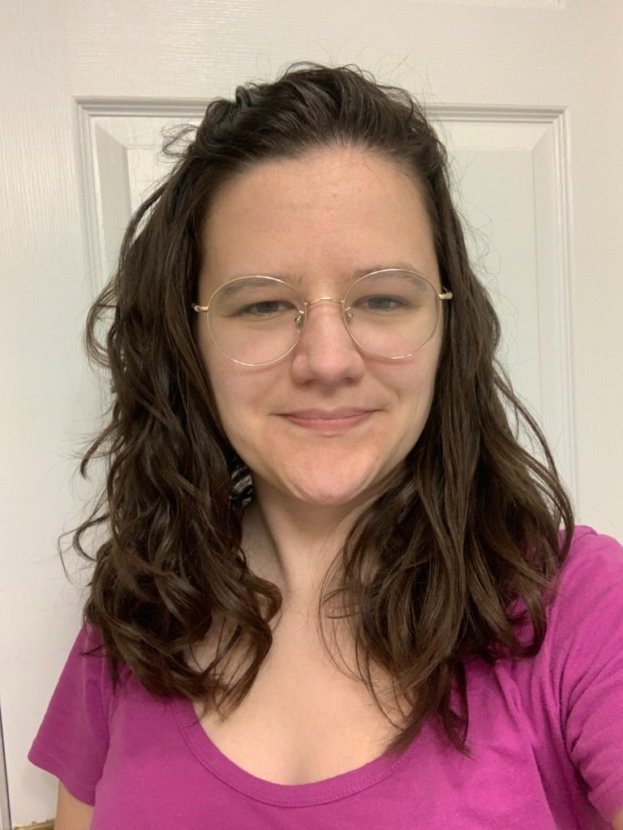What is Cowashing?
Cowashing is using a regular conditioner or a specifically formulated “cleansing conditioner” or “cowash” to wash your scalp and hair instead of shampoo.

Can Cowashing Effectively Clean Your Hair?
Conditioners contain surfactants which can do some cleaning of your hair, but they’re far less cleansing than shampoos. Conditioners also contain a smaller percentage of surfactants than shampoos do of cleaners. So they’re weaker cleansers, and a lower ratio of the cleansing ingredient in conditioners.
In other words, they can do some cleansing of your hair. Do they effectively clean your hair? That really depends on what effective means to you! There is some cleansing power, so your hair will be cleaner after using a conditioner as a cleanser than it would be if you just got your hair wet or something. It’ll be less clean than it would be with a shampoo, though. Some people see this as a good thing, and others see it as a bad thing.
According to the cosmetic chemists at BeautyBrains, if you use just conditioner to wash your hair, your hair will attract more dirt, pollen and dust from the air than it would if you were using a shampoo.
Shampoos contain detergents, so we’re able to add them to our hair/scalp and scrub a little and get really clean results. Conditioners don’t have detergents but do have surfactants, but the surfactants are weaker cleansers than detergents and the overall product doesn’t have a ton of surfactant in it. So you should use a good amount of conditioner and you should really spend a long time making sure you use your fingertips to rub every bit of your scalp.
Products that are specifically sold and marketed as cowashes can have low amounts of mild detergents, so these are usually more cleansing than using a conditioner, but less cleansing than a shampoo.

Can You Use Regular Conditioner To Cowash?
Yes, using a regular conditioner to cowash was what cowashing originally meant. Products that are specifically made and marketed as cowashes are now available as well.
Is Cowashing The Same Thing As NoPoo?
No. Here is the definition of nopoo from the NoPoo reddit wiki.
Using water/sebum only mechanical cleaning techniques to clean your hair and scalp and supplementing with ingredients in their natural states as needed for water quality, health, presentability and preference. Examples include things that are ground up (clays and flours), made into tea/infusions (herbs, saponin containing plants), essential or pressed oils (not solvent extracted), fermented (vinegar, rice water) etc. Nothing that is ‘derived from’ or ‘plant based’ that was produced in a lab or industrial environment that fundamentally alters the nature of the material.
While nopoo isn’t the same thing as cowashing, it is a common misconception. So, you may come across people who say they nopoo when they actually cowash.
Can You Use The Same Conditioner To Cowash and Condition?
Some people use the same conditioner to cowash (cleanse their scalp) and to condition (to moisturize the lengths of their hair). Others prefer to use two different conditioners. Some feel that they need a lighter conditioner for cleansing their scalp, and a heavier or more moisturizing conditioner for their lengths.
If you opt to use the same conditioner for cowashing and conditioning, it’s usually advised that you still complete two steps. Use cowash to cleanse your hair and let that dirty conditioner rinse out, and then apply conditioner to the lengths of your hair and rinse out again.
What Cowashes Work Well For Wavy Hair?
The majority of people with wavy hair seem to report that cowashing doesn’t work well for them. Cowashing is more popular with tightly curly hair or kinky/coily hair. However, others with wavy hair report that it does work well for them. Like so many other aspects of hair care, what works well can really vary a lot from person to person.
As a general rule of thumb though, lightweight conditioners and cowashes are likely to work best for wavy hair. Scroll down a bit to see a list of conditioners and cowashes that I’ve seen people with wavy hair report having success with.
How Often Should You Cowash Wavy Hair?
Some say that the ideal is to only cleanse wavy hair once a week. The curly girl method handbook says people with wavy hair should clean their hair every 3-4 days. Some people with wavy hair wash their hair daily.
How often you choose to cleanse your hair (through cowashing or any other method) is really a combination of personal preference, your lifestyle and your hair type.
I personally advocate for “listening to your hair”. If it’s been 4 days since you’ve washed your hair and it still looks, feels and smells fine, you probably don’t need to wash again yet. On the other hand, if it’s day two and your hair looks greasy, your scalp itches and your strands feel heavy and dirty – then I’d say it’s time to wash.

Can You Conditioner Wash and Use Low Poo?
Lots of people rotate between cowashing and using lowpoo or even regular shampoo. I’ve seen people with wavy hair say something like “If I always shampoo, my hair gets dry. If I always cowash, my hair gets limp and over moisturized. So I lowpoo one wash day, cowash the next, and keep rotating! Then I use a clarifying shampoo once a month. It’s the perfect balance for me.”
You certainly can come up with some sort of a mixed routine if you want to.
How To Make CoWashing More Effective
One of the problems some people face with cowashing is feeling like their hair isn’t getting clean enough. Here are some tips for getting more effective results while cowashing.
Double-wash. Remember the old “lather, rinse, repeat” saying on shampoo bottles? You can do that with cowashing, too! Sometimes cowashing twice gets a more effective cleanse.
Scrub every bit of your scalp. With conditioner washing, you are relying more on mechanical cleaning. You have to scrub you entire scalp very thoroughly to effectively remove dirt and oil. Where with regular shampooing, you do a little mechanical work but the detergent does most of the cleaning on its own.
Add water. Keeping your hair soaking wet while cowashing can help the cowash to spread across your entire scalp.
Use a shampoo brush. Using a shampoo brush can help to scrub longer without your fingers getting completely exhausted!
Use your finger pads and scrub your scalp in circular motions. Don’t scratch with your fingernails.
Use a lot of cowash! There isn’t a lot of cleansing ingredients in conditioners and cowashes, so using more product is a way to make sure you get effective results.
What kind of wavy hair may do well with cowashing? Bleached, highly damaged, coarse hair.
What Type Of Wavy Hair Does Well With Cowash?
Dry and coarse wavy hair is the least likely to be weighed down by cowashing, so wavies with dry coarse strands are probably the best candidates for cowashing.
Popular Cowashes For Wavy Hair
With most product categories, when you see someone ask a wavy hair group what they like, you’ll see a huge variety of answers. For example, ask them what gel they’d recommend and I’d expect an almost endless list of different answers, with many gels getting repeated mentions. When you perform that search for cowashes (as I did in “research” for this blog post), I’d estimate about 50% of the results I came across on different platforms were “As I am coconut cowash”. It is clearly a serious favorite by a large margin!
Side note – I typically only recommend products that I personally like and use. Cowashing doesn’t work well for my hair, so these are not personal suggestions from me.
As I am Coconut Cowash (Amazon / Walmart)
Cantu Complete Conditioning Co-wash (Walmart)
V05 Strawberries & Cream conditioner (Far cheaper when purchased locally than online! Should be around $1).
Curlsmith curl quenching conditioning wash (Amazon)
Bouclème Curl Cleanser (Amazon)
Suave green apple conditioner (Way cheaper to purchase locally. Should be around $1)
Emily, like you, my hair needs to be shampooed every three days. I have very fine, low density, high porosity wavy hair. I have oily roots and now have a short Bob hairstyle. I use EvolVh Ultrashine shampoo and conditioner. I style with Kenra 6 cream air dry and Kenra gel in pea sized amounts. Less is better and I clarify about once every 3 weeks. My hair needs protein so I do use EvolVh reconstructing masque after clarifying. I have other shampoos and mix it up occasionally. Thank you for all of your help with wavy hair.
Sydney
I’m overjoyed to see this post and the timing is perfect! I have fine lowish density (Minoxodil is helping) 2b-3a hair. Through extensive experimentation these past five months I’ve had my best success as one of the “rotators” you described. One wash day is Maui Moisture shampoo with Verb thickening conditioner and the next is Curlsmith Quenching Cowash followed with Curlsmith Multitask protein conditioner, then clarifying every few weeks.
Recently I watched two different wavy/curly YouTube personalities criticizing cowashing and stating that it isn’t effective and doesn’t work. I got nervous that I was somehow mistreating my hair so I popped on here to search for your thoughts, and you did not disappoint! Thank you for a thorough and informative post.
The majority of my hair is 2c which I’ve read is a challenge to maintain a proper moisture/protein balance on, so hopefully I’ve finally nailed it.
Thank you for all your efforts in researching and sharing your findings. You have helped me figure out my challenges more than any other resource.
What funny timing! That’s cool. Cowashing doesn’t work well for me, and I do think most people with wavy hair do better with shampoo but there definitely is a segment of wavies who respond well to cowashing! I like to share a lot of personal experience and “experiments” on here because I feel the most knowledgeable about the things that work for me…but I try to occasionally cover things like this which aren’t for me but might be for others! I’ve definitely learned through reading tons of content in wavy/curly groups over the last six years or so that hair varies a lot more than I ever would have guessed when I was younger.